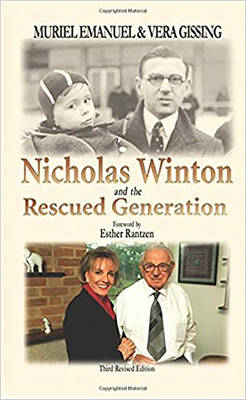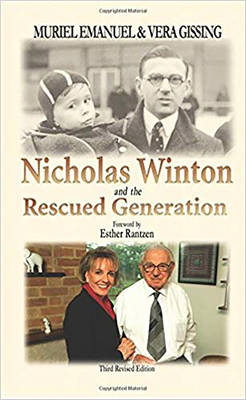
- Retrait gratuit dans votre magasin Club
- 7.000.000 titres dans notre catalogue
- Payer en toute sécurité
- Toujours un magasin près de chez vous
- Retrait gratuit dans votre magasin Club
- 7.000.0000 titres dans notre catalogue
- Payer en toute sécurité
- Toujours un magasin près de chez vous
Nicholas Winton and the Rescued Generation
Save One Life, Save the World
Muriel Emanuel, Vera Gissing
21,95 €
+ 43 points
Description
When Nicholas Winton met a friend in Prague in December 1938, he was shocked by the plight of thousands of refugees and Czech citizens desperate to flee from the advancing German army. A British organisation had been set up to help the adults, but who would save the children? Winton felt he could not walk away. He set up a makeshift office and in just three weeks interviewed thousands of distraught parents who had the courage to part with their children and send them alone to England. Armed with their details and photos, he returned to London to convince the Home Office of the urgency of the situation. He knew he was working against time. His supreme efforts resulted in eight trainloads bringing 669, mainly Jewish, children to London. For half a century these children, now dispersed and in their seventies, were unaware of the person to whom they owed their lives. To Winton, it was just a job. Even his wife knew nothing of what is undoubtedly his greatest achievement, until 1988, when clearing out the attic she came across documentation relating to the episode. From that moment, Winton's life was never the same again. Winton has been a remarkable humanitarian all his life. After the war, wishing to be involved with the rehabilitation of Europe's refugees, he worked for international organisations. He retired early, settled in Maidenhead and devoted himself to charitable works for which he was honoured with the MBE in 1983. Amongst other awards, he was granted the freedom of the City of Prague in 1991 and was awarded the Tomas Garrigue Masaryk Order by President Havel in a grand ceremony in Hradcany Castle in 1999. Nicolas Winton documentary (Power of Good) has won the 2002 International Emmy Award, in the category of TV documentary.
Spécifications
Parties prenantes
- Auteur(s) :
- Editeur:
Contenu
- Nombre de pages :
- 192
- Langue:
- Anglais
- Collection :
Caractéristiques
- EAN:
- 9780853034254
- Date de parution :
- 01-11-01
- Format:
- Livre broché
- Format numérique:
- Trade paperback (VS)
- Dimensions :
- 145 mm x 226 mm
- Poids :
- 385 g

Les avis
Nous publions uniquement les avis qui respectent les conditions requises. Consultez nos conditions pour les avis.






